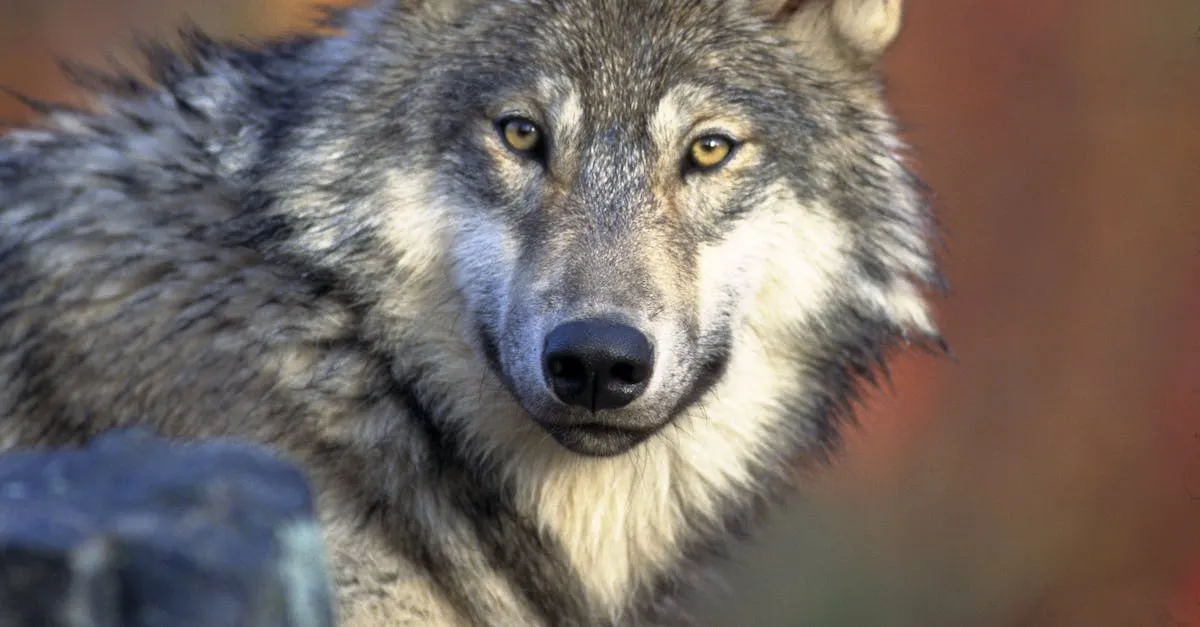Can You Legally Own A Wolf In Texas? Examining The Laws And Regulations
If you’re fascinated by wolves and have dreamed about owning one as a pet, you probably wonder if it’s legal to own a wolf in the Lone Star State of Texas. With its wide open spaces and wild frontier history, Texas might seem like the perfect place to own an exotic animal like a wolf. However, the laws regarding wolf ownership in Texas are complex. In this comprehensive guide, we’ll provide a quick answer up front and then dive into the details on wolf classification, ownership laws, penalties, and exemptions in Texas to help you fully understand the regulations.
If you’re short on time, here’s a quick answer to your question: It is illegal to own, possess, or transport a wolf in the state of Texas, with few exceptions. Wolves are designated as prohibited non-game species by Texas Parks and Wildlife.
Classification of Wolves in Texas
When it comes to owning a wolf in Texas, it is important to understand the classification of these magnificent creatures. Texas recognizes two main types of wolves: the gray wolf and the red wolf.
Texas identifies the gray wolf as an endangered species
The gray wolf (Canis lupus) is considered an endangered species in the state of Texas. This means that the population of gray wolves in Texas is critically low, and special measures are in place to protect and conserve them.
The Texas Parks and Wildlife Department (TPWD) has implemented regulations and laws to ensure the preservation of this species and its habitat.
For more information on the gray wolf’s status in Texas, you can visit the TPWD website here.
The red wolf is listed as endangered by the federal government
The red wolf (Canis rufus) is another species of wolf found in Texas. It is important to note that the red wolf is not only considered endangered in Texas but also by the federal government. The U.S. Fish and Wildlife Service (USFWS) has designated the red wolf as an endangered species, and they have specific programs in place to protect and recover the population of red wolves.
If you are interested in learning more about the red wolf and its conservation efforts, you can visit the USFWS website here.
Wolves are designated as non-game animals prohibited from ownership
While wolves are fascinating creatures, it is important to note that they are designated as non-game animals in Texas. This means that they are not considered game animals for hunting or trapping purposes. Additionally, Texas law prohibits the ownership of wolves as pets or for any other purposes.
It is crucial to respect these laws and regulations to ensure the well-being of wolves and the preservation of their species. If you encounter a wolf in the wild, it is advised to observe from a safe distance and avoid any direct contact.
Texas Laws Prohibiting Wolf Ownership
The Texas Health and Safety Code bans private ownership of wild animals
When it comes to owning a wolf in Texas, the laws are clear – it is illegal. The Texas Health and Safety Code explicitly prohibits the private ownership of wild animals, which includes wolves. This legislation is in place to protect both the public and the animals themselves.
Wolves, being wild animals, require specific habitats, diets, and social structures that are difficult to replicate in a domestic setting. By banning private ownership, Texas aims to ensure the welfare of these magnificent creatures.
Texas Parks & Wildlife Code prohibits ownership of most non-game species
The Texas Parks & Wildlife Code also comes into play when it comes to wolf ownership. This code prohibits the ownership of most non-game species, which includes wolves. Non-game species are animals that are not typically hunted for sport or food.
The code aims to protect wildlife populations and preserve the ecological balance of the state. It recognizes that wild animals, such as wolves, are best left to inhabit their natural habitats rather than being confined to domestic settings.
Penalties include fines up to $10,000 and jail time up to 1 year
If someone is found to be in violation of the laws prohibiting wolf ownership in Texas, there are serious consequences. Penalties can include fines of up to $10,000 and jail time of up to 1 year. These strict penalties reflect the gravity of the offense and serve as a deterrent to potential wolf owners.
It’s important to note that these laws exist for a reason. Wolves are majestic creatures that play an essential role in maintaining healthy ecosystems. Removing them from their natural habitats and attempting to domesticate them can lead to significant welfare issues for the animals and potential dangers for the owners and the public.
It’s crucial to respect and protect these animals by adhering to the laws and regulations in place.
Exemptions That Allow Wolf Ownership
While owning a wolf as a pet is generally prohibited in Texas, there are some exemptions to this rule. These exemptions allow certain entities and individuals to legally own and possess wolves. Here are some of the exemptions that may allow wolf ownership in Texas:
Zoos, circuses, and research facilities may be exempt in some cases
Entities such as zoos, circuses, and research facilities may be exempt from the restrictions on wolf ownership. These organizations often require special permits and licenses to keep and exhibit wolves.
They must meet certain criteria and follow strict regulations to ensure the welfare and safety of the animals.
These facilities play a crucial role in conservation efforts and education. They provide a controlled environment where people can learn about wolves and their natural habitats. It’s important to note that these exemptions are granted to professional organizations with the necessary expertise and resources to properly care for these animals.
Native American tribes may have exemption rights for religious purposes
Native American tribes have a unique relationship with wildlife, and their religious and cultural practices may involve the ownership and use of wolves. The federal government recognizes the sovereignty of Native American tribes and grants them certain rights and exemptions, including the ownership of wildlife for religious purposes.
These exemptions are based on the understanding that wolves hold significant spiritual and cultural value for many Native American tribes. They are often considered sacred and are integral to tribal ceremonies and traditions.
It’s important to respect and recognize the cultural significance of these exemptions while also ensuring the welfare and conservation of the animals.
It’s worth noting that these exemptions are specific to certain circumstances and organizations. The general public is not eligible for these exemptions and should not attempt to own a wolf as a pet without the proper permits and licenses.
Steps to Take if You Find a Wolf
Contact Texas Parks & Wildlife immediately if you see a wolf
If you happen to come across a wolf in Texas, it is important to take immediate action. The first step you should take is to contact Texas Parks & Wildlife as soon as possible. They have trained professionals who can handle these situations safely and effectively.
You can reach out to them through their hotline or report the sighting on their website. It is crucial to provide them with accurate information about the location and behavior of the wolf to assist them in their response.
For more information, you can visit the Texas Parks & Wildlife Department website, where you can find detailed guidelines on what to do if you encounter a wolf.
Do not attempt to capture, transport, or care for a wolf yourself
While your intentions may be good, it is important to remember that wolves are wild animals and can pose a potential danger. Therefore, it is strongly advised not to attempt to capture, transport, or care for a wolf yourself.
These animals require specialized care and handling, and interfering with them can be both illegal and risky.
By reporting your sighting to Texas Parks & Wildlife, you can ensure that professionals with the necessary expertise and resources are involved in handling the situation. They will assess the situation and take appropriate action to ensure the safety of both the public and the animal.
Remember, it is always best to leave the handling of wildlife to the authorities who are trained to deal with such situations. They have the knowledge and experience to handle these animals safely and protect their well-being.
Conclusion
In conclusion, it is generally illegal for a private citizen to own a wolf in Texas due to state laws classifying wolves as prohibited non-game animals. The only exceptions are extremely limited, such as certain permits granted to zoos or research facilities. Wolves face threats in Texas, and it’s important that the public does not attempt unauthorized capture or care of wolves. If you have a passion for wolves, channel it productively by supporting wolf conservation efforts in the state.








